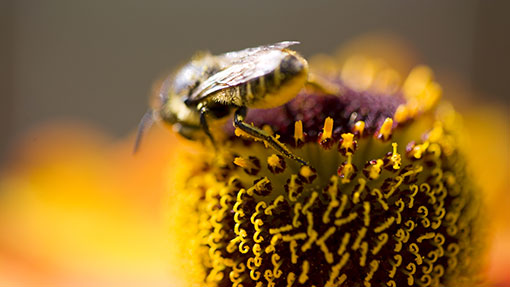Canadian beekeepers sue pesticide firms over neonics
 © Rex/ Shutterstock
© Rex/ Shutterstock Canadian beekeepers are suing the makers of neonicotinoid pesticides for CAD$400m (£222m) in damages, claiming they are responsible for a decline in bee health.
Two of Ontario’s biggest honey producers, Sun Parlor Honey and Munro Honey, submitted the lawsuit on behalf of Canadian beekeepers to Ontario Superior Court on Tuesday (2 September).
London law firm Siskinds LLP filed the claim to recover damages allegedly suffered by beekeepers over the widespread use of neonicotinoid pesticides.
See also: Farmers face further EU restrictions on a range of pesticides
Beekeepers are claiming damages of CAD$400m to recover losses and CAD$50m (£27m) in punitive damages from pesticide manufacturers Bayer CropScience and Syngenta, dating from as far back as 2006, specifically from products containing the active ingredients imidacloprid, clothianidin and thiomethoxam.
The statement of claim alleges, among other things, that Bayer and Syngenta were negligent in their manufacture, sale and distribution of neonicotinoids in Ontario causing beekeepers to suffer significant losses and damages.
The alleged losses include killed or weakened bees, non-productive queen bees and bee colonies, contaminated wax, combs and hives, reduced honey production and lost profits, costs incurred to meet honey and pollination contracts, and increased labour, equipment and supply costs.
Tibor Szabo, spokesman for the Ontario Beekeepers’ Association, said it was not directly involved in this action, but would “support any effort that could help beekeepers recover losses caused by the overuse of neonicotinoids”.
Neonicotinoids are widely used as a seed coating in soya bean, maize and oilseed rape crops in Canada, to repel crop pests, such as aphids.
However Bayer and Syngenta have said that the risk to bee health from these pesticides is low, provided they are used according to their labels.
They maintain other factors, including loss of habitats and climate change, were to blame for the decline in bee numbers. Globally, the companies have singled out the parasitic Varroa mite as the main culprit for the collapse in bee populations.
Last month, Bayer published research showing that European bees were much healthier than many recent media publications have suggested.
New field data from nearly 400,000 bee colonies from 21 countries in Europe and the Mediterranean show that overwintering losses of honey bee colonies – an important indicator of general bee health – were at their lowest level in years in 2013-14.
Both Defra and the NFU have called for more research into the effects of neonicotinoids on bees, especially at field scale, saying that evidence that they harm bee health is “inconclusive”.

